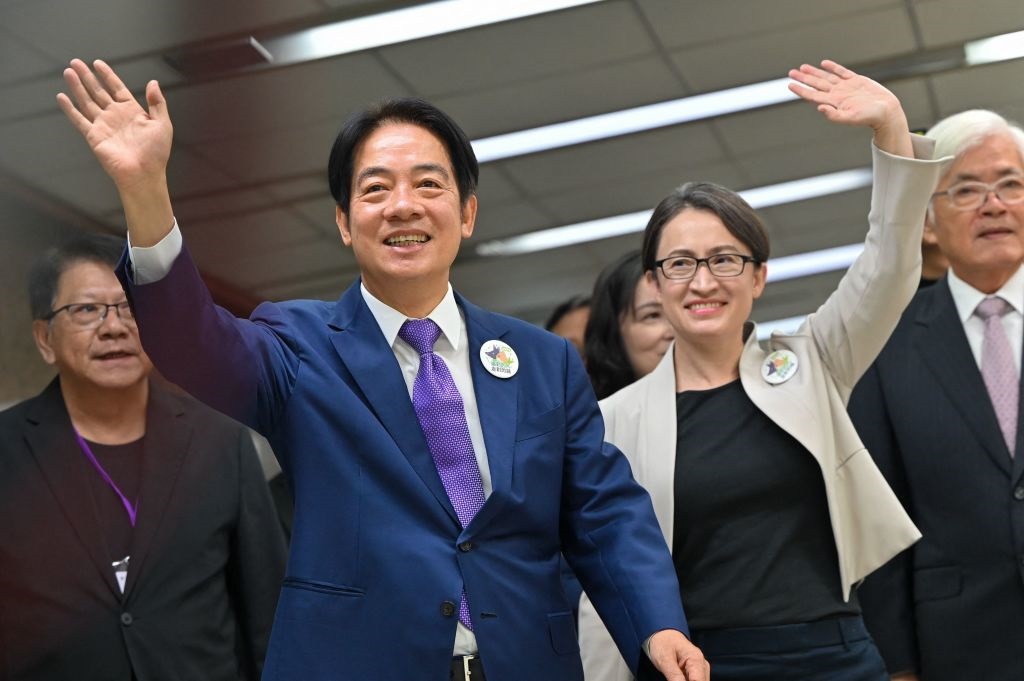
In the campaign for Taiwan’s January 2024 presidential election, the 24 November deadline for formal registrations of candidatures with the Central Election Commission led to a week of political high drama. With the lead of Lai Ching-te’s Democratic Progressive Party (DPP) in the polls narrowing, the opposition contenders tried to negotiate a joint ticket to prevent splitting their votes. The first attempt, between the Koumintang (KMT)’s Hou Yu-ih and the Taiwan People’s Party (TPP)’s Ko Wen-je, collapsed within days over who would take the presidential and vice-presidential roles. Ko, a doctor who styles himself as the smartest guy in the room and leads a relatively new third party, agreed to a process that would likely have relegated him to the vice-presidential position despite his strong polling numbers. His staff were reportedly in tears when they saw what he had agreed to, and he withdrew from the deal once the air cleared.
The second attempt involved the third opposition candidate, the industrialist Terry Gou. All three gathered at the Grand Hyatt Hotel for negotiations but ended up conducting what became a rancorous and chaotic extended press conference in front of the assembled media. All three men gave speeches and directed comments at each other, went away for private discussions, and then left with no resolution.
The afternoon had something of the tone of those public disputes that have erupted over the years among the men who lead Australia’s major sporting codes.
Terry Gou subsequently withdrew from the presidential race entirely and on the Friday deadline Ko Wen-je and Hou Yu-yih registered themselves and their own vice-presidential candidates, signaling that any joint ticket deals were off.
The spectacle damaged the two remaining opposition candidates, especially Ko Wen-je. Both Ko and Hou had claimed that they could deal more effectively with Beijing than the DPP’s Lai Ching-te, but in demonstrating that they could not deal with each other, they undermined one of their campaign arguments.
At the same time, there is genuine voter fatigue with the DPP after President Tsai Ing-wen’s two terms, and a range of domestic issues, such a low wage growth, housing affordability, and a slowing economy, that are weighing on Lai Ching-te’s campaign. Ko Wen-je has proven surprisingly popular with younger voters by highlighting these issues and tapping into long-standing voter frustration with the limits of the two-party system. His argument that Taiwan’s achievements as a democracy should not just mean having to choose between two establishment parties works well against the DPP’s claim to own the democracy struggle of the 1970s and 80s.
With the Lai campaign running efficiently but struggling to be heard over the media attention on the opposition and with polling tightening, the vice-presidential candidate choices presented a circuit-breaker for the election campaign as a whole.
Ko Wen-je’s running mate is Wu Hsin-ying, a member of the Legislative assembly for Ko’s TPP. Educated in the UK and the US, she is the daughter of Eugene Wu, the former chairman of Shin Kong Financial Holdings, a financial, property and insurance conglomerate. Wu Hsin-ying previously held a leadership position within the Shin Kong group under her father. In campaign terms, she probably does not solve Ko’s fundamental campaign problem of winning over southern Taiwanese voters.
The KMT’s Hou Yu-yih’s vice presidential choice is Jaw Shaw-kong, who has held a number of roles in government since the 1980s, both during and after the martial law period. Jaw split from the KMT in the 1990s and joined the right-wing New Party before leaving politics to establish a media group. He ultimately led the acquisition what was originally the KMT party-state broadcaster China Broadcasting Corporation when it was privatised in 2005. He maintained a public media profile and rejoined the KMT in 2021. Jaw is very conservative and, in his commitment to the concept of the Republic of China, represents the so-called Deep Blues who are the KMT’s base. He puts a floor under the KMT’s vote while the more centrist presidential candidate, Hou Yu-yih, in theory reaches more moderate voters.
The running mate for the DPP’s Lai Ching-te is Hsiao Bi-khim, a choice telegraphed for many months. Hsiao had been serving as Taiwan’s representative to the US in Washington since 2020 under President Tsai Ing-wen. The daughter of a Presbyterian minister and educated in the US, Hsiao has been one of the most enduring progressive political figures of the democracy era on the DPP side. She became involved in DPP youth politics in the US before returning to Taiwan to lead its international office in the 1990s, then worked within the DPP administration of Chen Shui-bian in the 2000s as well as holding a seat in the Legislative Yuan. In the 2010s, she campaigned in legislative elections for the KMT stronghold of Hualien County on the east coast, ultimately winning in 2016. Among many issues, Hsiao promoted a coastal ferry service for Hualien, which is isolated on the eastern side of Taiwan’s huge central mountains, using an Incat catamaran built in Tasmania, the Natchan Rera.
Hsiao Bi-khim is very well-known to Taiwan observers from the US and Europe, but much less so in Australia, which reflects the lack of familiarity with Taiwanese politics in Australian policy-making. Having had a positive presence in Washington as Taiwan representative, Hsiao offers reassurance for the US and delivers continuity for Taiwan internationally if Lai Ching-te is elected president.
One poll taken after the candidate nominations gave Lai Ching-te a bump, while another was much closer. Overall, the campaign has settled into familiar patterns: there are the two main parties and an insurgent third force while internal party dynamics and the narrow concerns of party voter bases shape politics in counter-intuitive ways. There are heartwarming campaign ads mixed with brutal political attacks.
Taiwanese voters can be broadly cynical about politics but favour safe hands in presidential elections. It is still probably Lai Ching-te’s to lose, but there are six weeks to go.

